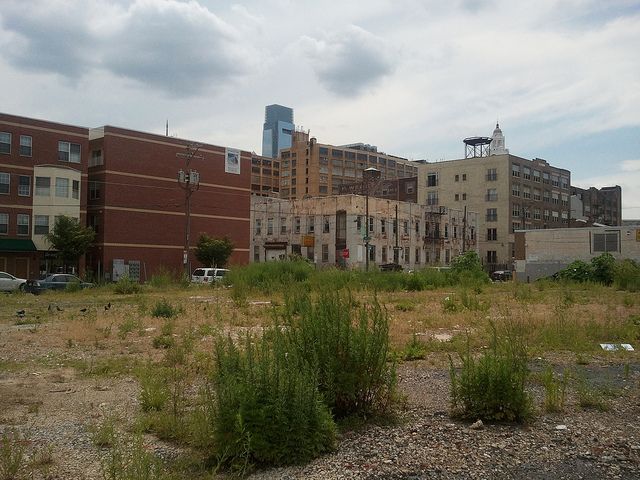In his 1989 essay “Why Parties?,” political scientist Thomas Schwartz proposed a theory of how party behavior could originate in a three-person legislature. He observed that there would be great temptation for two of the lawmakers to join together and pass legislation for the benefit of their constituents, while shifting all the costs onto the constituents of the third.
This two-person alliance would result in a “long coalition” because, by resolving to cooperate across a whole range of different issues, the two lawmakers can ensure that a majority of constituents always wins an outsized share of the benefits of governance, and a minority of constituents always gets shafted with an outsized share of the costs. This stabilizes politics in our fictional legislature, since the arrangement will satisfy a comfortable majority of permanent winners, while the permanent losers cannot easily depose the two dominant lawmakers without a major reorganization at the top.
The logic of the “long coalition” can explain politician behavior in larger legislatures as well, and is the foundation of the councilmanic prerogative tradition so cherished by District representatives of the Philadelphia City Council.
Councilmanic prerogative is an unwritten agreement between Philly’s 10 District councilmembers, whereby each representative is afforded total authority over land use and development issues in his or her district, such as zoning changes or the transfer of city-owned properties. Whenever there is a vote concerning land use, each District councilmember — as opposed to the seven elected at large — will vote in deference to the given district’s representative, who will in turn vote to protect the organized groups within districts who elect them.
Since municipal politics is mostly about growth and development issues, the default District party political platform is heavy on pandering to better-organized longtime residents who have a taste for stopping new things from happening. Narrow neighborhood-level interests are the permanent winners of this long coalition, and citywide interest the permanent loser.
That is what advocates of a functional Philadelphia Land Bank are up against, politically.
Land banks are essentially centralized publicly controlled clearinghouses for selling vacant city-owned land. Developed in the shrinking city of Flint, Mich., the concept has recently spread to other cities grappling with large amounts of abandoned properties, including St. Louis, Chicago and, of course, Philadelphia.
In Philly, the proposed bank’s goals are pretty simple: Consolidate vacant property holdings into a single agency and create a single point of contact for everyone who wants to purchase land from the city. Advocates say that the creation of a new agency run by technocrats rather than elected officials will take away one of the main sources of City Council power and, therefore, depoliticize the sale of city land. In the big picture, the bank will streamline the development process and help the city unload the 12,000 vacant lots currently weighing down its balance sheet.
The land bank would have the power to acquire property ahead of other bidders at a tax sale, and would bid only the amount of the city’s claims on delinquent taxes and unpaid liens — not the market value, as with eminent domain. This would allow the city to undercut speculators, and assemble properties for larger developments and public uses without invoking eminent domain, an expensive, time-consuming legal process.
Critically, the land bank would have the power to clear titles for land, which has been a problem for all tax sales, and particularly for urban agriculture and community gardening groups. Even some decades-old gardens are not actually owned by the community groups who use them, and are therefore perpetually in jeopardy.
But getting a land bank created will take more than convincing councilmembers of the tool’s merit. Advocates will also need to make the case that there could be real political fallout for those who do not support a more transparent and predictable system of land transfers. Just as importantly, they will have to articulate a shared vision that this system will work toward.
As AxisPhilly reporter Isaiah Thompson remarked on Twitter, the range of competing visions for vacant land resembled a “great post-industrial urban Rorschach test. Some see farms, others development. Some see public liability, some an asset.”
There are several key issues that divide the coalition behind the land bank. A big one is how to pay for it.
Councilmember Jim Kenney was perturbed that the city’s land maintenance costs would increase under a land bank system. It is difficult to predict how much of a sticking point this could be, but raising taxes to pay for something like maintaining vacant land is a difficult political lift even in more liberal jurisdictions like Philadelphia. (Currently, the costs of foregone maintenance of privately owned and, let’s face it, publicly owned land parcels are shunted onto those parcels’ near neighbors as depressed property values.) If this bill passes, the City Council will to have to raise more money in total, at least in the short-term. The only question is whether it will come from a general tax increase, a new source of dedicated revenue or cuts in other spending.
A property tax increase could peel off some political support from realtors and housing suppliers, not to mention voters at large. Other ideas, like former Office of Housing and Community Development head John Kromer’s plan to buy and sell properties listed for tax collection sale with an added surcharge, seem less likely to generate significant political resistance.
Once the question of funding is settled, the land bank bill will have to overcome a more serious philosophical divide among supporters: Is it a tool to address social issues, such as affordable housing demands, environmental concerns and other public needs? Or is it a more straightforward lever to move properties on tax rolls and generate revenue for the city?
In one representative testimony, Amy Miller of the East Kensington Neighbors Association expressed concern that properties attracting interest from multiple parties might be sold to the highest bidder without regard to community desires. “What will the disposition process be,” she asked, “so we can accommodate community concerns and protect gardens and green spaces from being bulldozed?”
As Miller learned Monday, that question hasn’t yet been answered any more concretely than to say that once the bank is created, a strategic plan will be developed.
That strategic plan will assess a variety of socioeconomic indicators in affected neighborhoods, and potentially recommend subsidies for affordable housing, job-generating economic development, community service facilities, urban agriculture and community open space, as well as uses vaguely termed “innovation in design and sustainability.”
But these vague ideas won’t be sufficient in the long term. If land bank supporters are to prevail, they will need to coalesce around a clear shared vision on land transfers that hews to specific policy goals, economic, social or otherwise.
For more on land banks, read our recent Forefront story, “Flint’s Man in Washington.”

Jonathan Geeting is a freelance writer based in Philadelphia, where he writes about land use and public space politics. His work appears at Next City, This Old City and Keystone Politics.
















